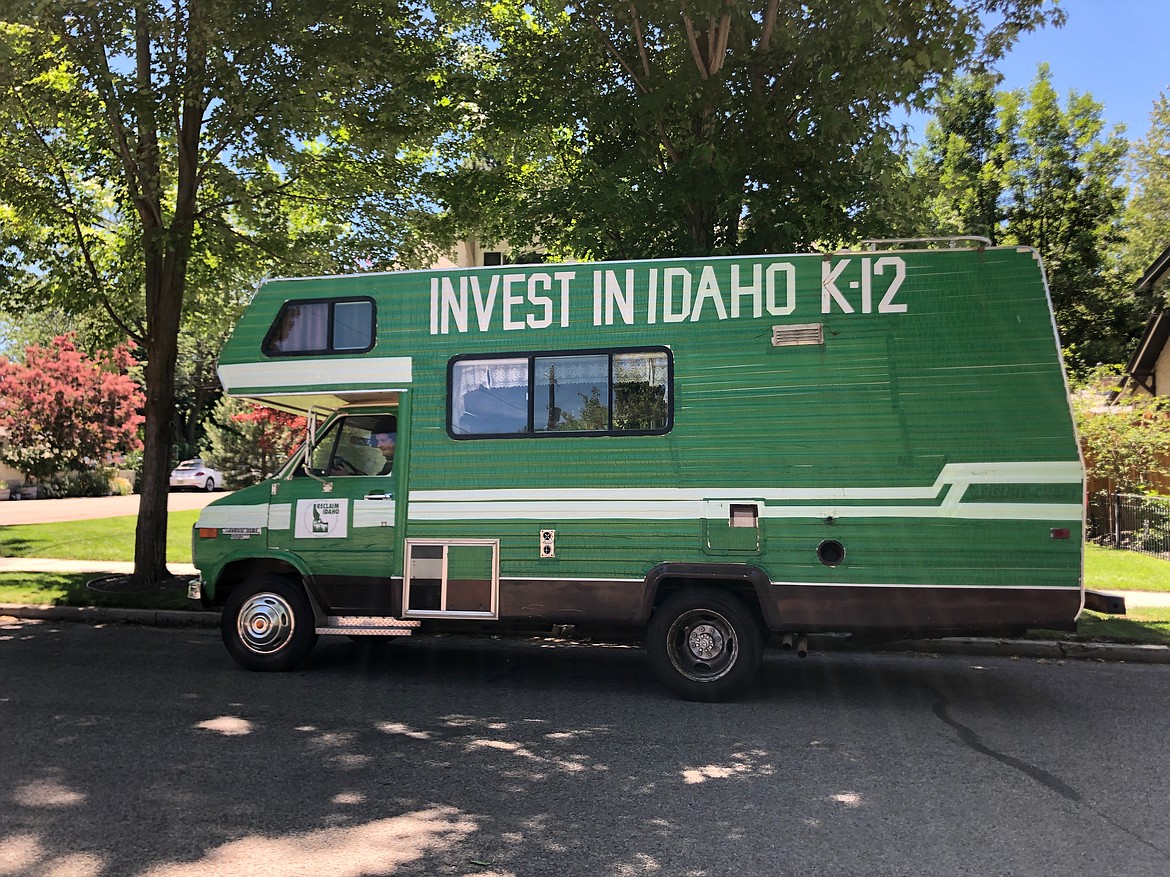Idaho Supreme Court overturns tougher ballot initiative law
BOISE (AP) — The Idaho Supreme Court has rejected a new law designed to make it harder for voters to get initiatives on the ballot, saying the legislation was so restrictive that it violated a fundamental right under the state's constitution.
The ruling issued Monday was a win for Reclaim Idaho, a group that successfully sponsored a Medicaid expansion initiative three years ago and that is now working to qualify an initiative for the ballot that aims to increase public education funding.
Idaho Speaker of the House Scott Bedke said in a prepared statement that members of the House Republican Caucus were disappointed by the ruling. He said the law would have increased voter involvement, "especially in the corners of the state too often forgotten by some."
Reclaim Idaho co-founder Luke Mayville said the ruling means thousands of Idaho residents are "breathing sighs of relief."
"Nearly every time in our history that our legislature attempted to eliminate the initiative process, either the governor or the courts stepped up to protect the rights of the people. Today's decision adds a new chapter to that history, and future generations of Idahoans will look back on the court's decision with gratitude," Mayville said in a prepared statement.
The high court's opinion written by Justice Gregory Moeller was unanimous in its main conclusion — that the law should be overturned — though two of the justices said they would have gotten at the same conclusion in slightly different ways.
"The ability of the legislature to make laws related to a fundamental right arises from the reality that, in an ordered society, few rights are absolute," Moeller wrote. "However, the legislature's duty to give effect to the people's rights is not a free pass to override constitutional constraints and legislate a right into non-existence, even if the legislature believes doing so is in the people's best interest."
The case pitted the rights of voters to enact and repeal laws against the power of the state Legislature to shape how ballot initiative efforts are carried out. The new law, which passed earlier this year, required signature-gatherers to get 6% of registered voters in each of Idaho's 35 legislative districts within a short time span. Opponents said it made Idaho's initiative process the toughest in the nation, rendering such efforts virtually impossible to achieve. But supporters said the law would protect people with less popular political opinions from being overrun by the majority.
The new law quickly became the subject of two lawsuits — one from former Deputy Attorney General Michael Gilmore, who said the law violated the equal protection clause of the state constitution and divided the people's legislative power — and one making similar arguments brought by Reclaim Idaho and the Committee to Protect and Preserve the Idaho Constitution, Inc. The cases were combined before the Idaho Supreme Court.
The high court dismissed the lawsuit brought by Gilmore because the justices found that as an individual Idaho citizen, he didn't show that he was specifically being harmed in any different way than other Idaho voters.
But in response to the lawsuit from Reclaim Idaho and the Committee to Protect and Preserve the Idaho Constitution, the justices agreed that the the law wrongly created a "dramatic check on the ballot qualification process without showing a compelling need for such a check," and noted that all qualifying initiatives or referenda are already subjected to a statewide vote.
"The legislature's actions amounted to a one-two punch for groups like Reclaim and the Committee — it passed a law that made the initiative and referendum process more difficult for proponents of future ballot propositions, while simultaneously making it more difficult for those opposed to the new law to pass a referendum to repeal that very law," Moeller wrote.
The high court rejected the Legislature's claim that the law would evenly distribute power across the state. Instead, it essentially gives every district "veto power" over qualifying initiatives and referenda, the court found.
"For example, a lone urban district in Boise could thwart an agricultural initiative with strong statewide support," Moeller wrote. "If the legislature's actual goal is to prevent any initiative or referendum from qualifying for the ballot, then this is probably an effective tactic. However, this is inconsistent with the constitutional requirement of a 'narrowly drawn' solution."
The ruling means the previous version of the law — which requires signatures from 18 of the state's legislative districts — goes back into effect.

